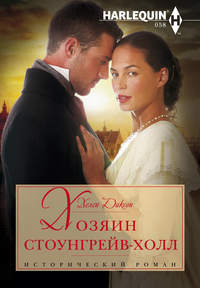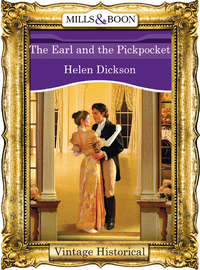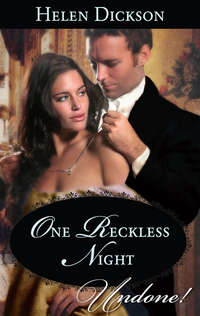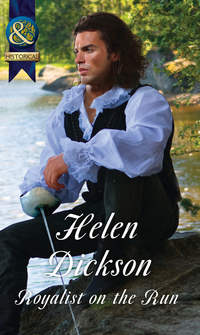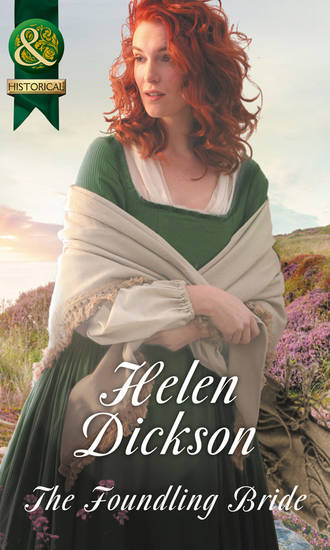
Полная версия
The Foundling Bride

From orphan to blushing bride!
Lowena Trevanion has never known her family. Abandoned as a baby, she was eventually taken in by the wealthy Carberrys as a servant. But she has always wanted to truly belong somewhere...
When Marcus Carberry returns from the army, he can’t believe the innocent girl he left behind has blossomed into a stunning woman. The difference in their stations means their love can never be... Yet the closer Marcus gets, the more he wants to give this orphan the happy-ever-after she deserves!
Lowena watched his gaze drop to her mouth in a state of anticipation that was reaching dizzying heights.
Marcus took two steps to close the distance that separated them, his gaze still focused on her lips. She caught her breath. She could feel his warmth, the vital power of him. The size and heat of him had the power to shock her. Sensations of unexpected pleasure flickered through her. She was powerless to prevent what she hoped with all her heart would happen next.
Taking her arms, he drew her to his chest. Their faces were close together, his breath warm on her lips. Her trembling hands reached up to hold him. Under her clutching fingertips the muscles of his shoulders beneath his coat coiled and quivered reflexively. Placing his finger below her chin, he tilted her face to his, lowering his head and covering her mouth with his own.
Author Note
Cornwall, steeped in its history of smuggling and shipwrecks and ancient legends, has provided inspiration for numerous authors—and I am no exception. It never fails to capture my imagination.
Some years ago I wrote Highwayman Husband—the setting was Cornwall and I really enjoyed writing it. I’ve spent many memorable holidays in that lovely county, and I was drawn to writing another book set there.
After ten years of soldiering, it is on a smugglers’ night that Marcus Carberry returns to Tregarrick, his home on the south coast of Cornwall. Here he becomes reacquainted with his hostile older brother and the innocence of Lowena Trevanion. Having experienced an unhappy affair in the past, he is in no rush to step up to the altar—but Lowena is a challenge he has not bargained on…
The Foundling Bride
Helen Dickson

www.millsandboon.co.uk
HELEN DICKSON was born and still lives in South Yorkshire, with her retired farm manager husband. Having moved out of the busy farmhouse where she raised their two sons, she now has more time to indulge in her favourite pastimes. She enjoys being outdoors, travelling, reading and music. An incurable romantic, she writes for pleasure. It was a love of history that drove her to writing historical fiction.
Books by Helen Dickson
Mills & Boon Historical Romance
Destitute on His Doorstep
Beauty in Breeches
Miss Cameron’s Fall from Grace
When Marrying a Duke...
The Devil Claims a Wife
The Master of Stonegrave Hall
Mishap Marriage
A Traitor’s Touch
Caught in Scandal’s Storm
Lucy Lane and the Lieutenant
Lord Lansbury’s Christmas Wedding
Royalist on the Run
The Foundling Bride
M&B Castonbury Park Regency mini-series
The Housemaid’s Scandalous Secret
Mills & Boon Historical Undone! ebook
One Reckless Night
Visit the Author Profile page at millsandboon.co.uk for more titles.
Contents
Cover
Back Cover Text
Introduction
Author Note
Title Page
About the Author
Prologue
Chapter One
Chapter Two
Chapter Three
Chapter Four
Chapter Five
Chapter Six
Chapter Seven
Chapter Eight
Chapter Nine
Chapter Ten
Extract
Copyright
Prologue
1761
Beresford House was a large, rambling old place. It stood away from a small Devon village, perched on a rocky promontory overlooking the sea. It was the home of the old and distinguished Beresford family, and until twelve months ago it had housed three members of the family, until Sir Frederick Beresford had died of a fever, leaving his wife and only child Meredith alone.
Twenty-year-old Nessa Borlase stood in the cold, dim light of the house, which smelled of death, and looked with great sadness at her young mistress. She was in her white nightdress, and at the side of the bed was her four-day-old daughter in her crib. The fever that had taken this girl’s father had spared her, only for death to take her in childbirth. Her labour had been an interminable agony. When she had finally thrust the babe out into the world she had lived just three days before breathing her last.
When her labour had started, her mistress’s mother, Lady Margaret, had retired to her room, leaving Nessa to minister to Meredith, her pregnant daughter. When Nessa had gone to her and begged her to send for the physician she had coldly refused.
Suddenly the door was thrust open and Lady Margaret stood there. As her gaze passed over her dead daughter there was no change in her self-righteous, steely-eyed expression. It was as cold an expression as Nessa had ever seen on a woman who had just lost her only child.
‘So, she’s dead, then.’ Her voice was as cold as her eyes.
Nessa swallowed audibly and nodded. ‘Yes—just now. I—I was just coming to tell you.’
Lady Margaret nodded, her eyes settling on her granddaughter in the crib. Her eyes were wide open, but the child was too young to comprehend what was happening, that her mother had just died. However, seeming to sense the malevolence in the woman—her grandmother—she began to whimper softly.
Something cold and heavy descended over her heart as Nessa went to the motherless babe and swept her up into her arms and held her close. ‘The babe is hungry. I must feed her.’
‘I don’t want her here. Take her away—anywhere, I don’t care, as long as she is out of my sight.’
Bewildered, Nessa stared at her. She couldn’t believe what she was hearing. ‘Take her away? Forgive me, my lady—I don’t understand. Where...?’
‘To Castle Creek. Where else would she go if not to that libertine of a father of hers? And do not insult my intelligence and pretend you don’t know who I mean. Don’t play the innocent.’
She was so certain of herself, so dreadfully intimidating as she stood beside the bed.
‘You played your part in the wretched affair when they were carrying on behind my back.’
Nessa was feeling colder by the minute, and Lady Margaret’s words hammered on her nerves. ‘But Sir Robert is still in Mexico. There will be no one at Castle Creek.’
‘There are servants. Let them deal with her. It’s not my concern. It’s either that or the orphanage.’
Nessa remained silent, but inside her anger stirred. Suddenly this embittered woman put her in mind of a witch—and she even seemed to hiss. It was the only way to describe the low-pitched, hate-filled words. If Nessa had hoped for compassion in her for her dead daughter, she knew better now. There wasn’t an ounce of compassion in this woman.
In her grief at losing Meredith, her beloved mistress, Nessa wanted to shout her anger, to remind her that if she hadn’t been so against her daughter seeing Robert Wesley there would have been no need for them to carry on behind her back. She took a deep breath to calm her jangling nerves, telling herself not to sound desperate, not to plead for the babe in her arms, but to be reasonable.
Lady Margaret’s hatred was deeply rooted in the past. Robert Wesley’s father, whose family had been greatly involved with the mining of silver and lead in that part of Devon for decades, had been her first love, and she had never forgiven him for throwing her over in favour of Robert’s mother. Nothing would have persuaded her to allow her daughter to form a liaison with his son.
As young as she had been, Meredith had been possessed of a passion for Robert Wesley she hadn’t been able to control. Lady Margaret had seen it—lust, she had called it. Lust, not love. And in her opinion lust was wicked—a sin that destroyed.
In the beginning Meredith had concealed her condition from her mother and the other servants, but it could not be concealed for ever. When she had told her mother she was to bear Robert’s child, her mother had railed and stormed unendingly, her face twisted with fury, accusing her of behaving no better than a peasant girl and calling her a whore.
Had it been anyone else who had fathered the child she would not have objected so strongly and merely forced a marriage, but she had not allowed her daughter to marry Robert Wesley. It had been too appalling for her to contemplate—and Nessa’s young mistress had been too young and too weak to disobey. Lady Margaret had not even allowed her to write and tell him of her predicament, and had kept her confined to the house, allowing her to see no one but her maid.
But the servants had talked among themselves in hushed whispers, and when Miss Meredith had taken to her bed they’d made up their own minds about what ailed the young mistress.
Lady Margaret had had no intention of letting her daughter keep the child. But, whatever her objections to the child’s father, neither did she wish to become involved in any scandal. People would talk, and she did mind about that. Not that she cared for their opinion, but to draw attention to one’s self in any way she considered ill-bred.
She had decided that when her daughter had been delivered of the unwanted burden, if it survived she would see it dispatched to an orphanage in another county. She had not expected her daughter to die, and now it no longer mattered what happened to the child.
‘And me, my lady?’ Nessa’s voice was low, her expression controlled.
‘You?’ Lady Margaret spoke as if addressing someone completely stupid. ‘What about you?’
‘Am I being dismissed?’ Nessa asked.
‘Yes, you are,’ she replied, her face a mask, her mouth inflexible. ‘Your services are no longer required in this house.’
Nessa looked at the pale figure of her young mistress, feeling a deep sadness. ‘But—I can’t leave,’ Nessa objected. ‘Miss Meredith—’
‘Is dead. She no longer has any need of you. You heard what I said. Oblige me by taking the child far away from this house. I don’t want you here.’ Her eyes dropped to the child. ‘Either of you,’ she added.
Nessa was stunned by the viciousness of Lady Margaret’s words. ‘But—my lady—you can’t do that,’ she ventured bravely. ‘The child is your granddaughter...’
‘And Robert Wesley is her father,’ she snapped back.
Decency and honesty came first in Nessa’s mind, and she could not understand how a woman could discard her own grandchild. ‘But—but what you are doing, my lady, is—is cruel.’
Lady Margaret’s eyes sliced over her. ‘You—a servant—dare preach to me about cruelty. Life is like that. Now get your things and go.’
‘But—my money—and a character...
Lady Margaret walked to the door, then turned to look back at the servant. ‘A character? I don’t think so. Get the child ready. I’ll give you whatever money is owed to you before you leave. I have nothing more to say.’
She gave her a last withering look and left.
* * *
With the child held in one arm, and carrying a bundle containing her few worldly possessions in the other, Nessa left Beresford House. Not that she was sorry to leave. In fact she was relieved to be gone. Tall, and carrying herself upright, Nessa was near to weeping—but anger prevented it.
The big problem was what she should do. She wondered what life had in store for her. It was important that she found work, otherwise she would be unable to ensure that regular money went to her mother and father. They lived across the Tamar in Cornwall, and they both suffered from ill health. Without her money they would be turned out of their cottage. But who would employ her? She had not been given a reference, and without a character she would not find it easy to find employment in service.
With these thoughts heavy on her mind she followed a route which took her along the two miles of pathways to Castle Creek, mentally damning Lady Margaret with every step she took. The woman should be ashamed—getting rid of her granddaughter as she would a stray dog.
It was a hot day, and the child was heavy in Nessa’s arms. She was wondering at the reception she would receive when Castle Creek came into view. Commanding a view over the English Channel, it was a solid, square-built house, with crenelated walls and innumerable windows. It was bigger and more imposing than any house Nessa had ever seen. She found it quite awesome.
Reaching the lodge, she knocked on the door. Getting no response, she peered through the window. It appeared no one was at home. She carried on up the long drive to the house and reached the heavy wooden doors. The shutters were closed, and when she pulled the rope that rang the bell inside the house sounded hollow and empty.
An old man in working clothes and a floppy felt hat who was tending the gardens told her that the old master had passed on two months back. His son, Sir Robert, had been in Mexico on silver mining business. He had been notified immediately, but before arrangements had been made for him to return home he’d been fatally wounded. The house had been closed and the other servants dismissed until further notice.
When the man had shuffled off to go about his work, Nessa stared after him. Clutching the babe in her arms—an orphan, she realised—she looked around. The beautiful house had a look of desolation about it, a feeling of emptiness, as though all the life it had known since the day it was built had been whisked away for ever.
What was she to do? What was to become of them? She had to find work, and the child would only hinder her. But for now there was nothing for it but to take the child with her to Cornwall.
The journey was hard. Without the usual method of feeding a young baby, she had to buy milk to spoon-feed her.
She had a spinster aunt who lived in Saltash, but being a harsh, self-righteous woman she would not take kindly to her turning up with an infant. Perhaps by some miracle something would turn up.
One thing she was sure of—Lady Margaret might not want her grandchild, and she, Nessa, had no part of her, but she would not take Miss Meredith’s defenceless daughter to any orphanage.
* * *
Two days after the lumbering farmer’s cart carrying Nessa Borlase and her young charge crossed into Cornwall, leaving her at a crossroads to go her own way, with her spirits crushed and no hope of finding a place for herself and the baby, a young boy rode over the undulating terrain.
Gripping the spirited roan with his strong legs, Marcus Carberry bent low over its glossy neck as he rode—at great danger, it seemed, not only to him but to the animal, as he galloped with complete abandon across the great expanse of undulating parkland. At any other time he’d enjoy courting danger—the thrill of it. But today he rode his horse hard in an attempt to rid himself of his brother’s harsh words.
Edward, his half-brother—the elder by six years—had arrived home from school. To his disappointment, Marcus had known immediately that Edward’s resentment towards him was unchanged.
‘Come, Edward,’ their father had said. ‘Aren’t you going to say hello to your brother? You haven’t seen him for almost twelve months.’
Edward had regarded Marcus with cold, malevolent eyes as he’d pulled off his leather gloves, and from his expression Marcus had known that Edward could quite happily have gone another twelve months and more without seeing his younger brother.
‘It’s good to see you, Edward,’ Marcus had said, in an attempt to reach out to his brother, despite his aura of barely concealed ferocity. ‘You are looking well.’
‘So are you,’ Edward had replied, before turning his back on him.
Marcus had stared at his straight back, angered by his attitude. His dislike of his brother at that moment had been so intense that he’d been afraid of losing his temper—and with it any advantage he might have.
Marcus’s mother, Lady Alice, was Lord Carberry’s second wife. Edward had been born to his first wife, who had died as a consequence of a carriage accident. At five years old, Edward had not welcomed his father’s second marriage. Even at so young an age he had resented the intrusion of a stranger into his well-ordered world—and he had resented it all the more when Marcus had come along, followed three years later by his sister Juliet.
In the distance the blue sea met the sky, and to the left of him a large lake on which many species of beautiful birds glided serenely and silently over the smooth surface was half a mile away. The boy gave it no more than a cursory glance as he rode towards the woods in the distance.
Once there, he slowed his horse and followed a narrow path into the trees. It was cool within the confines of the wood. The beech and the oak trees were heavy with leaf, dappling the path. In patches where the sun came through he felt the heat of those stray sunbeams as he rode through.
At ten years old he was a handsome boy. His eyebrows swooped fiercely upwards and his heavily fringed eyes were a startling silver-grey in a face as dark as a gypsy’s. His mouth had a hint of hardness, even in one so young, but at his age it was mobile, and he smiled easily and often. His hair was thick, and as smooth and black as a raven’s wing.
Hearing a rustling ahead, he paused and waited, smiling and looking with awe at the beautiful creature that suddenly appeared—a deer, slender and graceful, with long legs and stick-like antlers growing out of its proud head. Startled, it stopped and stared at him, before bounding away. The darkness that had shrouded him with his brother’s return melted away.
Laughing easily, the boy dismounted and led his horse along the path, delighting in the rabbits that ventured from the undergrowth and loving the peace of the wood which was shrouded in timeless tranquillity. The May sunshine had turned the beauty of the woodland and the quiet glades of ash and sycamore and venerable oak to every shade of green and brown.
He was so entranced with his surroundings that he could not believe his ears when he emerged into a circular glade and heard what he thought to be a young animal crying. The ground was thickly carpeted with delicate white wood anemones and bluebells, their scent quite intoxicating. Looking about him for the source of the noise, he found his eyes drawn to what looked like a bundle of rags beneath a canopy of leaves. He was sure he saw it move, and suddenly what looked to be a tiny hand reached up and thrashed the air.
Tentatively he moved towards it, unable to believe his eyes when he found himself looking down at a baby. It was wrapped in a pink woollen shawl which the infant, clearly objecting to being so confined, had worked loose with its wriggling about.
Marcus glanced around, unable to believe the baby was unaccompanied—surely someone would appear at any moment to claim it. Hunkering down, he studied the tiny scrap of humanity with interest.
‘Well, what have we here?’ he murmured.
The infant was female, by the look of it, and couldn’t be any more than a few days old—although he was none too sure, not having much knowledge of babies and never having given them much thought.
He felt a prickle of curiosity. She was a lovely-looking child to be sure, he decided, simply lovely. His heart softened towards the infant. She was distressed. Great fat tears brimmed from her incredible eyes and her face was red and screwed up with anger and exasperation.
‘Hush, now—stop yelling,’ he murmured softly, touching her cheek gently with the backs of his fingers.
He thought he must have a magic touch when she stopped crying almost immediately. Her eyes were as bright as two great blue jewels beneath their burden of moisture as they became fixed on his. When he held out his finger and placed it within her palm she gripped it and clung to it with a strength and fierceness incredible in one so young.
Maybe it was an instinct of self-preservation that made her grip so hard, as if she sensed she had been abandoned and stood the greatest chance of survival with this strange boy who had found her. Taking his finger to her mouth, she sucked on it hard, bringing a smile to Marcus’s mouth.
‘So you are hungry, are you, little one? Well, what is to be done with you? I can’t leave you here, now, can I?’
Retrieving his finger, he was about to get to his feet when, feeling a strong sensation of being watched, he glanced around him. He hoped someone would emerge from the trees and claim the child. When no one did, and beginning to realise that would not happen, he gently picked the child up and carried her to his horse. Mounting with some difficulty, and settling into the saddle, he cradled her in from of him.
He would take her to Izzy. She would know what to do.
Izzy Trevanion was the only child of a parson and his wife, and from Somerset. She had been educated by her father, and when she was of age had found employment as a governess to three young girls on an estate bordering Tregarrick, which had been the home of the Carberrys for generations. On her marriage to Colin Trevanion, the head steward at Tregarrick, she had left her employment to look after Colin and raise their family. They lived in a cottage on the Carberry estate.
Riding up the path towards the cottage, Marcus found the aroma of a tasty stew cooking in Izzy’s oven assailing him. It was plain fare Izzy prepared for her family, unlike the fancy dishes at Tregarrick. But Izzy’s stew was probably mutton with fresh vegetables, to be followed by a tasty suet pudding—well-cooked, nourishing, and mouth-wateringly tasty.
Having heard the horse, Izzy came out to see her visitor. Marcus knew she had a soft spot for him. He remembered the times when he had found his way to her cottage, when she had lifted him up and folded him to her ample bosom and told him stories which had held him agog. Now, wiping her hands on her apron, she smiled a welcome—but the smile faded when he swung himself out of the saddle with one hand and holding a child with the other.
Izzy watched the youngest of Lord and Lady Carberry’s two sons approach, waiting with an air of expectancy, her hands on her hips. She gasped, her eyes fixed on the infant. ‘My goodness, what have we here?’
‘A baby, Izzy. I found her in the woods.’
A slight breeze ruffled the child’s curls and the sun shone warmly on her pink cheeks. Izzy stared at her in amazement. ‘Found her? But—you don’t just find a baby. Who was she with?’
He shrugged. ‘I wouldn’t know. She was quite alone.’
Carrying the child ahead of Izzy into the house, he was greeted by Hester, the oldest of Izzy’s three daughters. She was kneading dough on a floured board. At eight years old, with a shock of brown curls and bright green eyes, Hester was a pretty girl, and already adept at running the cottage and controlling her younger sister Kenza, who was whisking eggs in a bowl. Annie, the latest addition to the household, was asleep in a basket beside the fire.
As one, the two girls at the table came to a halt to gape in wonder at the baby. It was a homely scene.





